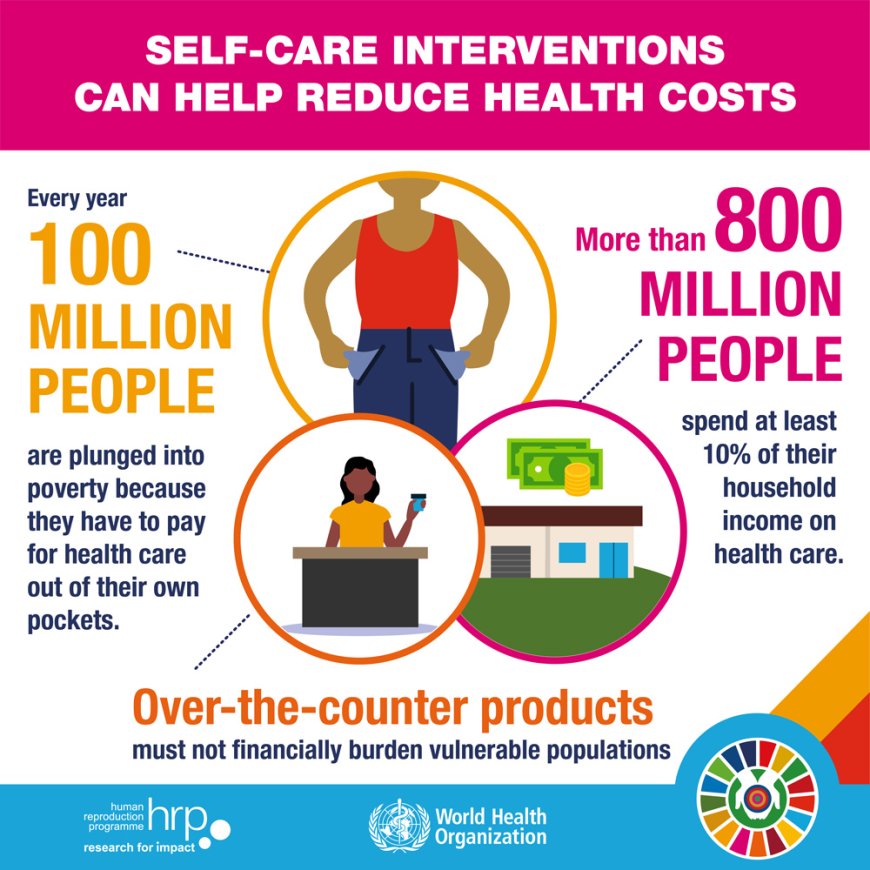Experts advocate self-care to ease pressure on health system

Experts have emphasised the importance of self-care as a cost-effective and sustainable approach to strengthening Nigeria’s healthcare system.
They said integrating self-care into national health strategies could significantly reduce pressure on overstretched health facilities while improving access for individuals and communities.
They made this known on Tuesday at the virtual self-care awareness-building workshop for media professionals organised by the White Ribbon Alliance Nigeria, the Federal Ministry of Health and Social Welfare, and the Self-care Trailblazer Group, themed “Media as a catalyst for advancing self-care for sexual, reproductive, and maternal health in Nigeria.”
Self-care, according to the World Health Organisation, is the ability of individuals, families, and communities to promote and maintain their own health, prevent disease, and cope with illness – with or without the support of a health or care worker. Self-care interventions can include medicines, devices, diagnostics, and digital tools.
WHO recommends self-care interventions for every country and economic setting as a critical path to reach universal health coverage, promote health, keep the world safe, and serve the vulnerable.
The Director and Head of Reproductive Health at the FMOH&SW, Dr. Samuel Oyeniyi, in his presentation, noted that self-care will be an adjunct to, rather than a replacement for, direct interaction with the health system.
“Self-care shall not be a cost-shifting mechanism from the government or existing health care financing structure to clients.
It shall be safe, effective, and able to reach individuals who may not be able to access health services,” he emphasised.
He said the government plans to create access to self-care interventions through all levels of healthcare.
“To achieve traction in our implementation, there must be a strong community component, and access points will include health facilities, pharmacy, primary health care centres, patent and proprietary medicine vendors, community-based distributors, digital and mobile technologies for health, caregivers, family, friends, and communities,” he noted.
He said self-care interventions play a crucial role in improving maternal and newborn health by promoting health education on antenatal, delivery, postpartum, and newborn care.
In her welcome speech, the Chairman, Board of Trustees, White Ribbon Alliance Nigeria, Dr. Nana Chidi-Emmanuel, emphasised the key roles the media play in creating awareness on the importance of self-care.
She said that with the challenges in the nation’s healthcare sector, it is imperative to create awareness on self-care.
“I am delighted to see such engagement from our media partners in this crucial area of Self-Care for Sexual, Reproductive and Maternal Health.
Today’s theme highlights the key role you play in shaping public understanding and behaviour, especially around self-care intervention. Your reporting has the power to transform how Nigerians approach and understand Self-Care, particularly in the areas of sexual, reproductive, and maternal Health.
Self-care represents a fundamental shift in how we approach healthcare delivery – empowering individuals with the knowledge, tools, and confidence to take greater control of their health. In a country as diverse and complex as Nigeria, with ongoing challenges in healthcare access, self-care interventions offer practical, cost-effective solutions that can significantly improve health outcomes.”
A Technical Officer, RMNCAECH at WHO Nigeria office, Dr. Femi James, emphasised that self-care interventions involve self-awareness, self-testing, and self-management.
“On self-awareness, there is a need for self-education, self-efficacy, self-determination, and self-management. Self-testing involves self-sampling and self-monitoring.
Self-management involves actions and products, such as self-monitoring of blood glucose levels.”
A representative of the Self-Care Trailblazer Group, George Kapiyo, said self-care addresses access gaps in health services, especially in low-resource settings.
“It supports health equity and autonomy, especially for marginalised populations; reduces burden on overstretched health systems and facilities; addresses shortages in the health workforce; and enhances autonomy and health literacy among individuals.
“It is cost-savings for health systems and governments; reduces out-of-pocket costs and time burdens for individuals; increases efficiency and allows better targeting of facility-based care; supports sustainability in healthcare delivery; frees up resources for complex medical cases; and reduces indirect costs to users – e.g., transport, time off work, childcare.”
Speaking on self-care in the context of sexual and reproductive health and rights, he said it refers to self-initiated actions to manage one’s sexual and reproductive health, such as self-administered contraceptives, self-testing for Sexually Transmitted Infections, or menstrual health management.
He explained that because issues of sex and reproduction are often deeply personal, and influenced by social, cultural, and legal barriers, making SRHR self-care accessible and affordable can greatly enhance autonomy, awareness, and informed decision-making.
“SRHR self-care is aligned with WHO self-care guidelines and empowers individuals, particularly those in underserved settings, to take control of their health in a dignified and private way,” he stated.
He also stressed that institutionalising self-care within national health systems ensures that self-care is not treated as a stopgap or informal solution, but rather as an integral part of health service delivery that meets quality standards and accountability frameworks.
“Institutionalizing self-care aligns with Universal Health Coverage, and broader health system strengthening goals,” he added.
The Senior Advisor, Programmes at Ipas, Samsu Gombwer, urged the media to educate the public about self-managed care and how to access post-abortion care.
According to him, this is important because unsafe abortion remains a significant contributor to maternal deaths in Nigeria.
“Women still die daily from largely preventable causes before, during, and after the time of giving birth.
The post-abortion period is critical whether it happens after a spontaneous miscarriage, or an induced abortion, every woman deserves safe, respectful, and stigma-free care,” he highlighted.

 admin
admin 


